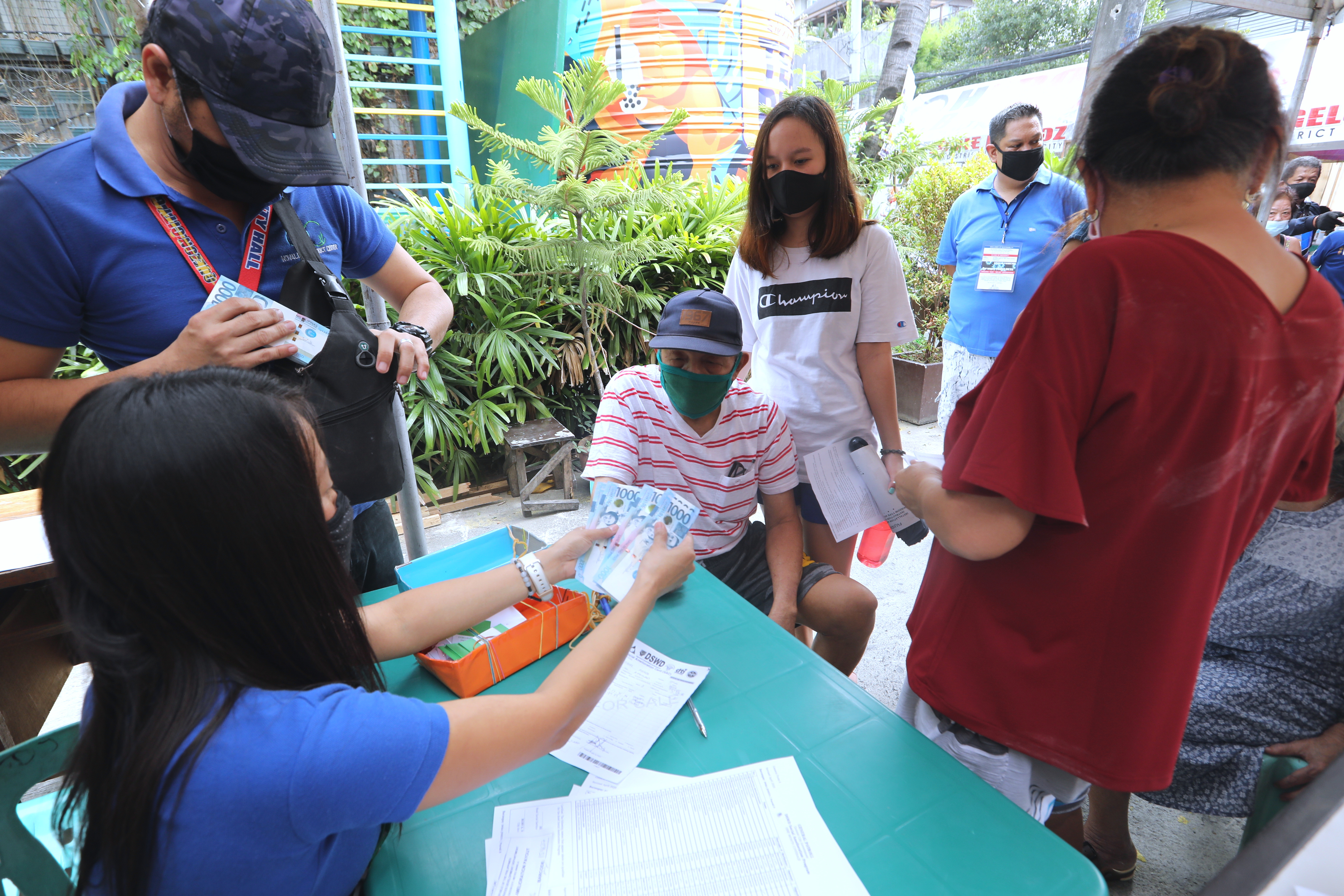Headline
Survey says SAP recipients use aid to buy food, pay off debts

FILE: Sixty-nine-year old Armando Cruz Prado (sitting), receives PHP8,000 in cash aid from the Department of Social Welfare and Development (DSWD) during the distribution of cash assistance under the Social Amelioration Program (SAP) at Barangay Doña Josefa in Quezon City on Wednesday (April 29, 2020). (PNA photo by Joey O. Razon)
MANILA – As the government’s social amelioration program (SAP) draws towards its completion, its lead implementer, the Department of Social Welfare and Development (DSWD,) conducted a study in partnership with the United Nations World Food Program (WFP) to learn how beneficiaries used their cash assistance during the pandemic.
The survey, in a copy provided to the press on Monday, reported that 58 percent of respondents said they used the money to pay off their debts.
“While food was the top priority for a majority, many beneficiaries also said that the assistance helped them buy hygiene kits and pay for essential health and medical expenses and to those who have existing debts, they used the aid to pay them,” the report states.
About 92 percent of the respondents, meanwhile, said they used the cash assistance to buy food.
DSWD Secretary Rolando Bautista said this study further proved SAP’s relevance as communities adopted strategies to cope with the crisis.
“The result of this initial survey is a concrete affirmation that SAP has achieved its goal of enabling the low-income beneficiaries cope with the economic effects of the ongoing Covid-19 pandemic,” he added.
The survey, titled “Remote Household Monitoring Survey on the Impact of the Covid-19 Pandemic and the Implementation of the Philippine Government’s Social Amelioration Program,” sampled over 3,600 households nationwide between June to August.
It was composed of SAP beneficiaries who are recipients of the Pantawid Pamilyang Pilipino Program (4Ps).
DSWD, however, clarified that less than 15 percent of the respondents were non-SAP beneficiaries, which were added to help examine the food security situation of those who did not receive cash assistance through SAP.
The survey also found that 67 percent of assessed households resorted to buying less-preferred and less-expensive food items.
Three out of four households experienced a reduction in income during the pandemic, mainly due to their inability to work because of travel restrictions.
Eleven percent of the respondents were found to have nutrition-deficient diets.
Among those who lost their jobs, 42 percent were either employed in the transport sector or were skilled laborers.
Eighty-three percent of them used negative coping strategies like selling their assets, borrowing money, or reducing non-food expenses.
WFP Philippines director Jane Pearce also announced that the survey is only the first of a three-part series that aims to assess the status of food security of SAP beneficiaries.
“We hope to assess the impact of the pandemic on income and livelihood, as well as how the SAP has impacted on food security among beneficiaries,” she added.





















